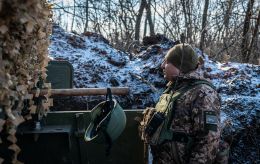'Now is not time to think whether to go to war or not': Ukrainian border guard fighter
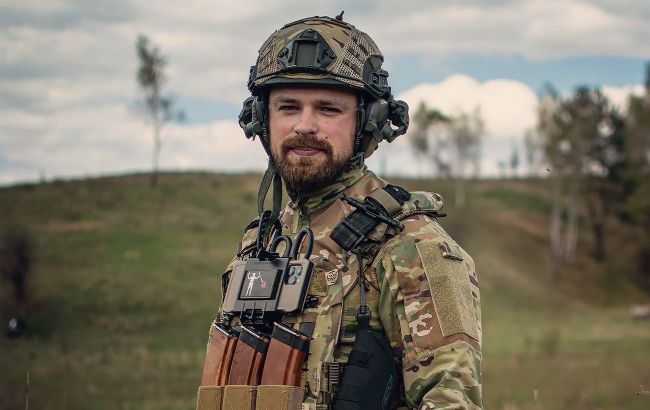 Yurii Vasylenko, fighter from 105th border guard detachment (Photo: Yurii's personal archive)
Yurii Vasylenko, fighter from 105th border guard detachment (Photo: Yurii's personal archive)
Mobilization for the State Border Guard Service of Ukraine, recovery after injury, and motivation to return to the frontline—the story of Military Yurii Vasylenko for RBC-Ukraine.
Yurii Vasylenko – a fighter from the 105th border guard detachment named after Prince Volodymyr the Great of the State Border Guard Service of Ukraine from Chernihiv. Before the full-scale war, he was involved in creativity, performing in shadow theater and touring 20 countries worldwide. He also worked as a photographer for some time. On the first day of the Russian invasion, he was already standing at the Chernihiv military enlistment office, preparing to volunteer at the front. Despite suffering severe injuries, he is now waiting to return to service.
Find out how a fighter managed to retrieve the body of a fallen comrade, the danger of the 4:2 position, and the current status of the defender during rehabilitation, in the material by RBC-Ukraine.
All soldiers must return home. How he retrieved the fallen soldier
At the beginning of 2022, Yurii and his friends agreed that they would go to the front together if a major war broke out. They planned it in detail: if combat actions started, they would gather their belongings and meet at the Chernihiv office, then decide where to go. On February 22, Yurii and his wife packed their emergency bags, and on the 25th, he went with friends to the border unit, where he was mobilized.
During the shelling of Chernihiv, they assisted other units. They also evacuated the wounded when shells were falling nearby. When the blockade of the city ended, they were sent to serve at the border.
"As soon as the Russians left Kyiv, Chernihiv, and Sumy regions, they practically immediately started shelling the border. Later, they began infiltrating with reconnaissance and sabotage groups, but the shelling started practically the next day after the enemy's troops withdrew," recalls the defender.
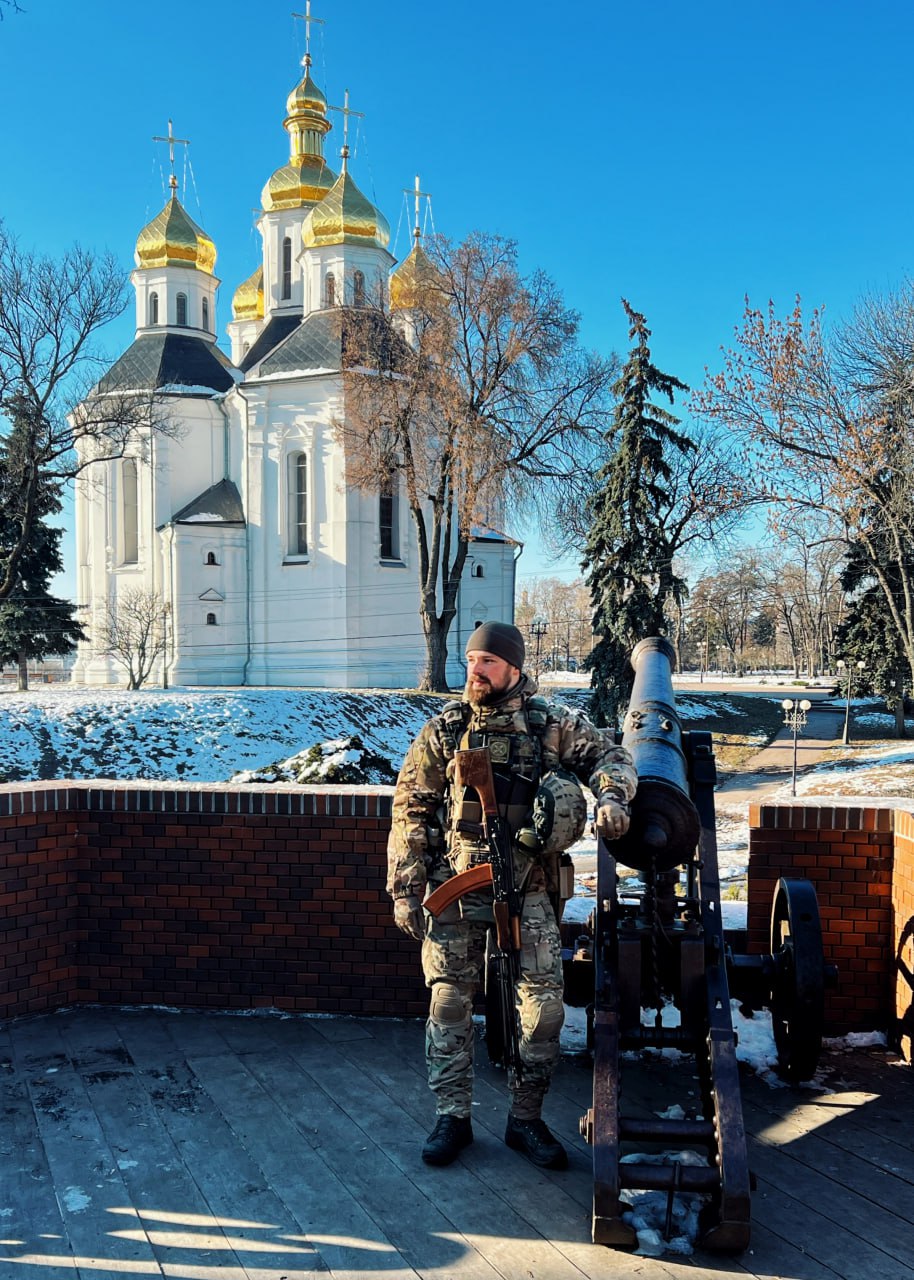
Photo: Yurii Vasylenko helped other units in Chernihiv after the Russian invasion began on February 24 (from his personal archive)
During the war, regardless of location, everyone serving on the border eventually headed to the front lines. When it was Yurii's turn to go, he was sent to the Maryinka area in Donetsk.
One day, the defenders' positions were heavily shelled. All soldiers were sitting in trenches. During an hour of shelling, there was only half a minute of silence. When the shelling stopped, the guys started coming out and heard a radio squealing from somewhere above, which had been knocked to the ground by the shockwave. They went to look for it, but unfortunately found more than just the radio. The soldiers came across the body of a comrade. They also found a boot: it turned out to be detached legs. A shell had hit the man in the knee area.
"Judging by the injuries, death came instantly, and he didn't suffer. Later, I dug up a broken rifle and a pierced RPG-7 round," recalls Yurii, "Probably before his death, he took a position with a grenade launcher near the exit to meet enemy vehicles. Strangely, I didn't notice him earlier. Perhaps my brain wasn't ready to see that and simply ignored it. I returned to the guys in the trench and recounted what I had seen. Adrenaline was wearing off for everyone. We started getting headaches and experienced strong psychological and physical fatigue. I wanted to sleep. But I couldn't fall asleep in that atmosphere, so I just sat near the entrance, listened to the radio, and watched what was happening around."
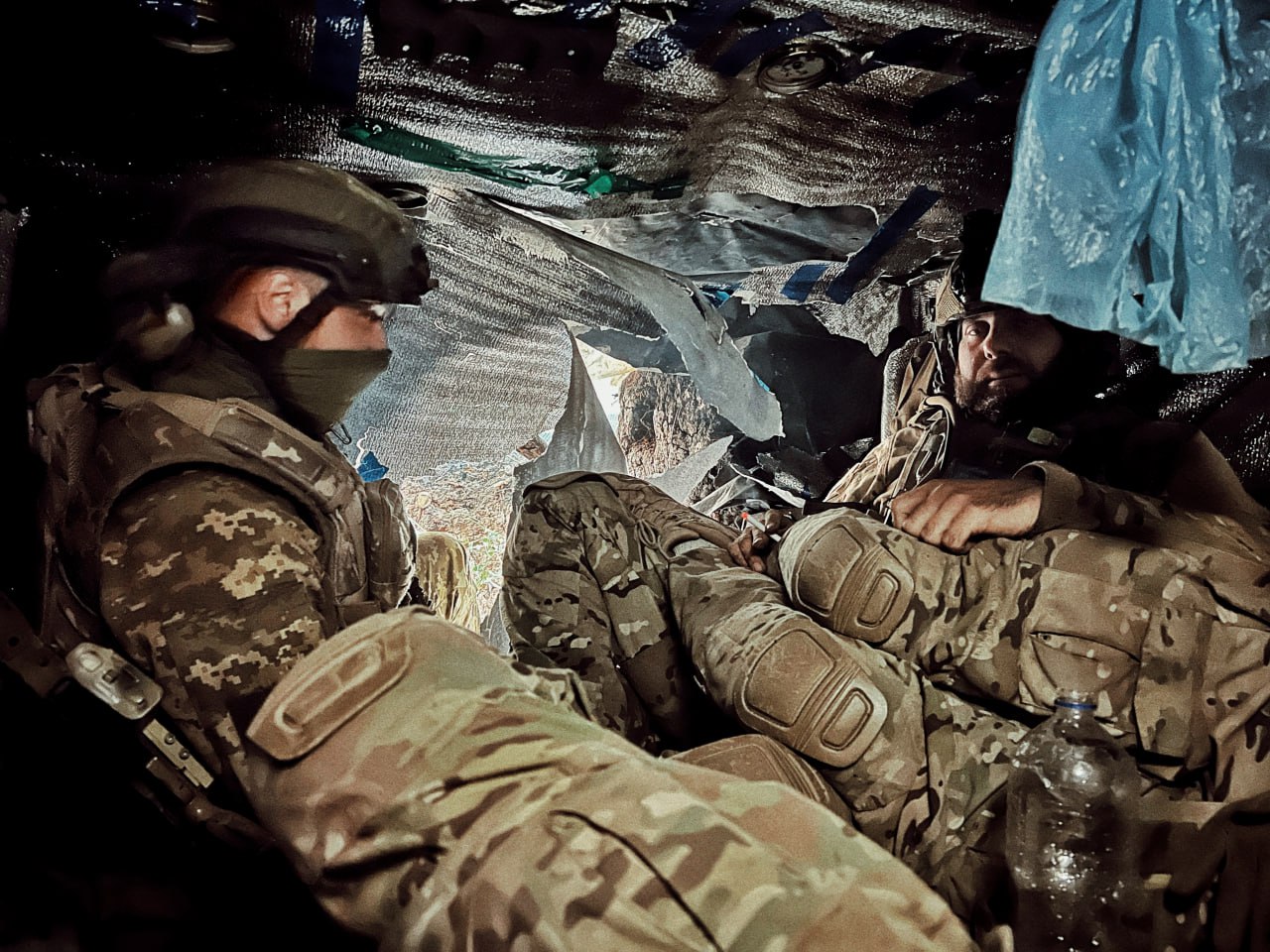
Photo: Border guard troops do not only guard the border. They actively participate in combat operations along the entire front line (from personal archive)
Yurii sat and thought about what he had seen. He didn't know the deceased soldier, but at that moment, he recalled that several of his acquaintances were missing. He imagined how difficult it was for their families, who, until the end, didn't believe that their husband, son, or father had died. They still felt the person was alive because there hadn't been a funeral yet. And then he understood that this man needed to be retrieved. While thinking about how to do it, his friend Igor woke up and suggested the same thing – to go and retrieve the fallen soldier.
"All soldiers must return home. So, we went. Igor stood behind covering near the trench, and I crawled into the field," says Vasylenko.
The body of the unknown defender was severely mutilated: only one arm remained, and there were no legs at all. He was covered in blood. Yurii pulled him by the belt for a long time. Then he started pulling by the arm – it broke. Finally, together with his comrade, they dragged him by the chest rig. At one point, Yurii felt a sharp jab in his thigh. It turned out the deceased's bone had wedged into his clothing: it didn't wound him, but the jab was quite strong.
"We put him on a stretcher and thought: that's it, the duty is fulfilled. Maybe, morally, it was a bit easier because I didn't know him. Although, of course, I had never pulled the hand of an unknown dead person before. But from the very beginning, I understood where I was going. And this realization somehow kept me going," he recalls.
Yurii often hears all soldiers being called heroes. But he believes he didn't do anything heroic. "To be called a hero, I have to do something truly heroic," adds the soldier. "But I didn't do anything like that. After returning from the front, I met with the deceased's wife. She saw one of my interviews and guessed it was about her husband. I told her that the body would not have been left in that field anyway: either it was taken away by order or in some other way. Eventually, some organizations deal with body removal. It just so happened that we did it a little earlier because we happened to be there then. We never left anybody. And no wounded ones," he adds.
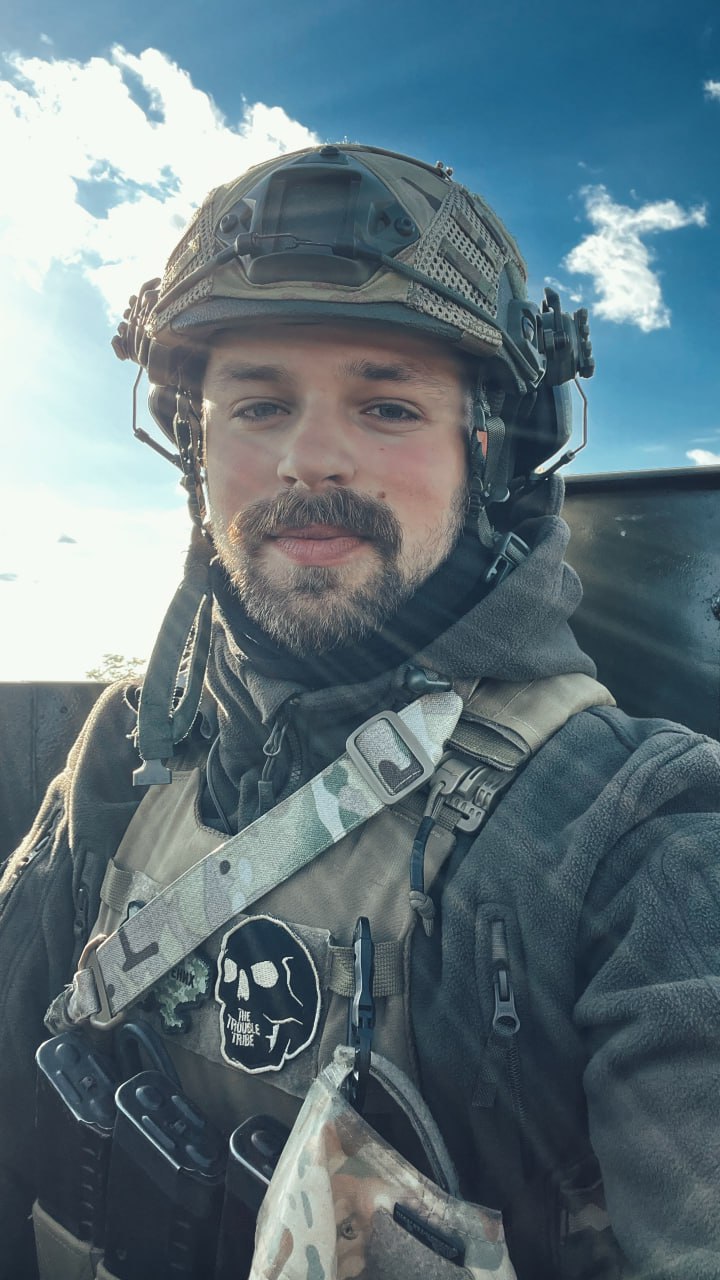
Photo: After the acute phase of the Russian invasion, Yurii and his comrades were sent to the Maryinka direction (from his personal archive)
They tried to finish me off for an hour. How I got wounded
The positions held by the military often have names. Some have had names since 2014.
"Once we found out that there was a burnt MAZ truck nearby on the roadside, that's how we named the position. Another, they say, let it be Kuzia—no one understood why, but that's what the place was called for years. The names of other guys stationed there before were passed down to us. Almost all positions where we were near Maryinka—they count about a dozen years," says Yurii.
Numbers named the positions in the Vuhledar direction. When the guys moved to a new place, they heard from others: "Look, just don't end up at position 4.2." Something terrible always happens there. That same evening, they received an order: the place they needed to go was that position.
Defenders were sent in a direction where there weren't enough people at the time because there were many wounded. The crew at position 4:2 initially just had to bring in ammunition and return. But intense shelling began, so they couldn't leave quickly. After the shelling, they managed to reach the evacuation point and learned that there were wounded there, and they needed to return and replace them.
"They sent me and another man, and he was about 60 years old. We were very tired, still dragging backpacks weighing about thirty kilograms. Near the position, the man started looking for the entrance. All positions nearby were mined, and that entrance was the only way through. We were noticed and started to be shelled again," says Yurii.
He managed to squat down on his knees; immediately behind him was a strong explosion. By the sound, it was a 152-millimeter shell. It threw him forward several meters.
.jpg)
Photo: After being wounded, the soldier dreams of returning to service as soon as possible (from his personal archive)
"I jumped into a nearby crater and sat there for an hour. The whole time, they tried to finish me off. A drone hovered over me, directing fire. Mortars and artillery were firing at me. I was almost completely buried in the dirt during the intense shelling. But nothing hit me during the whole intense shelling. My comrade got up and was wounded in the lung. They carried him out first, then me. That's when I first blacked out," recalls the defender.
Yurii came to his senses without a helmet and body armor: two soldiers were dragging him by the arms across the field. They brought him to the nearest dugout at the adjacent position, stopped the bleeding, and administered intravenous fluids. From there, he was taken to the evacuation point, driven in an APC (armored personnel carrier), and swiftly transported to a stabilization point.
In the hospital, it turned out that he had injuries to both legs and his right arm. There were 81 fragments lodged in his body. One of them tore part of the bones in his foot, and he lost about two liters of blood.
After that, the soldier was treated in Dnipro and Kyiv. Several complex operations were performed. Initially, he couldn't walk for several months, but now he moves with crutches. Due to barotrauma, Yurii lost his sight; now he wears glasses. But the main thing is that he can walk again, he says.
Rehabilitation and desire to return to service
Now, Yurii Vasylenko is at home in Chernihiv, undergoing weekly rehabilitation procedures. They have started working on his right leg, which was severely injured. All necessary procedures are provided free of charge.
"All the doctors' efforts are aimed at returning me to duty. Since the injury, I haven't paid a penny for any procedure. I've heard that there are different stories about this, but I've never encountered any difficulties accessing treatment. All my acquaintances also receive rehabilitation for free. It's important not to lose the documents confirming that the injury was sustained during combat. Having such documents gives the 'green light' for the necessary procedures," notes Vasylenko.
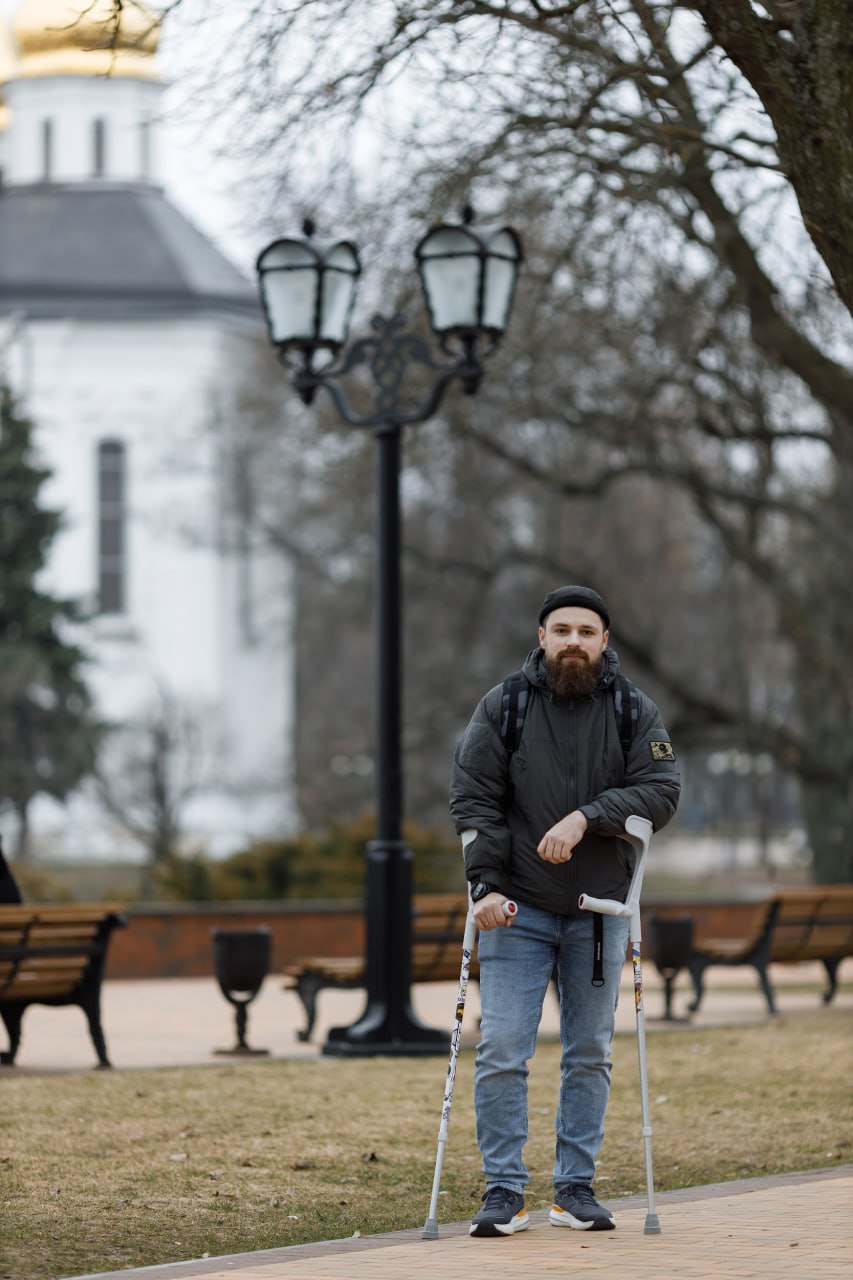
Photo: Yurii undergoing rehabilitation in his native Chernihiv (from his personal archive)
After the injury, Yurii was supported by his wife, Olha. They didn't see each other for several months and then were in different hospitals. They met Olha during the Revolution of Dignity on Maidan Chernihiv. They've been married for 8 years.
"When I lay wounded, I thought it was all over, saying goodbye to my wife in my thoughts. Over time, I gradually felt better, and she was with me everywhere in hospitals. Now she jokes that I walk too much on my own, so she promises jokingly to put a GPS in my pocket by accident. When my wife goes to work, I try to walk for as long as possible and go into the city whenever possible. I got tired of being at home; it took too much time," says the interlocutor.
Despite the severe injury, several surgeries, and the difficulty of walking, Yurii wants to return to the front as soon as possible. Shortly after the injury, he initially thought that rehabilitation would progress more quickly. But now doctors say that any predictions can only be made with time. Because it's still unknown, for example, to what extent the leg will recover.
"The human body is not a machine where you can replace a part, which will work. In any case, recovery proceeds differently. Right now, I can't squat, can't stand on tiptoes. It's difficult to say which position I can aim for. But I want to return to service. Because the war is not over yet, and I still have some experience and skills, so I want to be useful. Most of my friends weren't military before, but now they are also ready to defend the homeland," says the border guard.
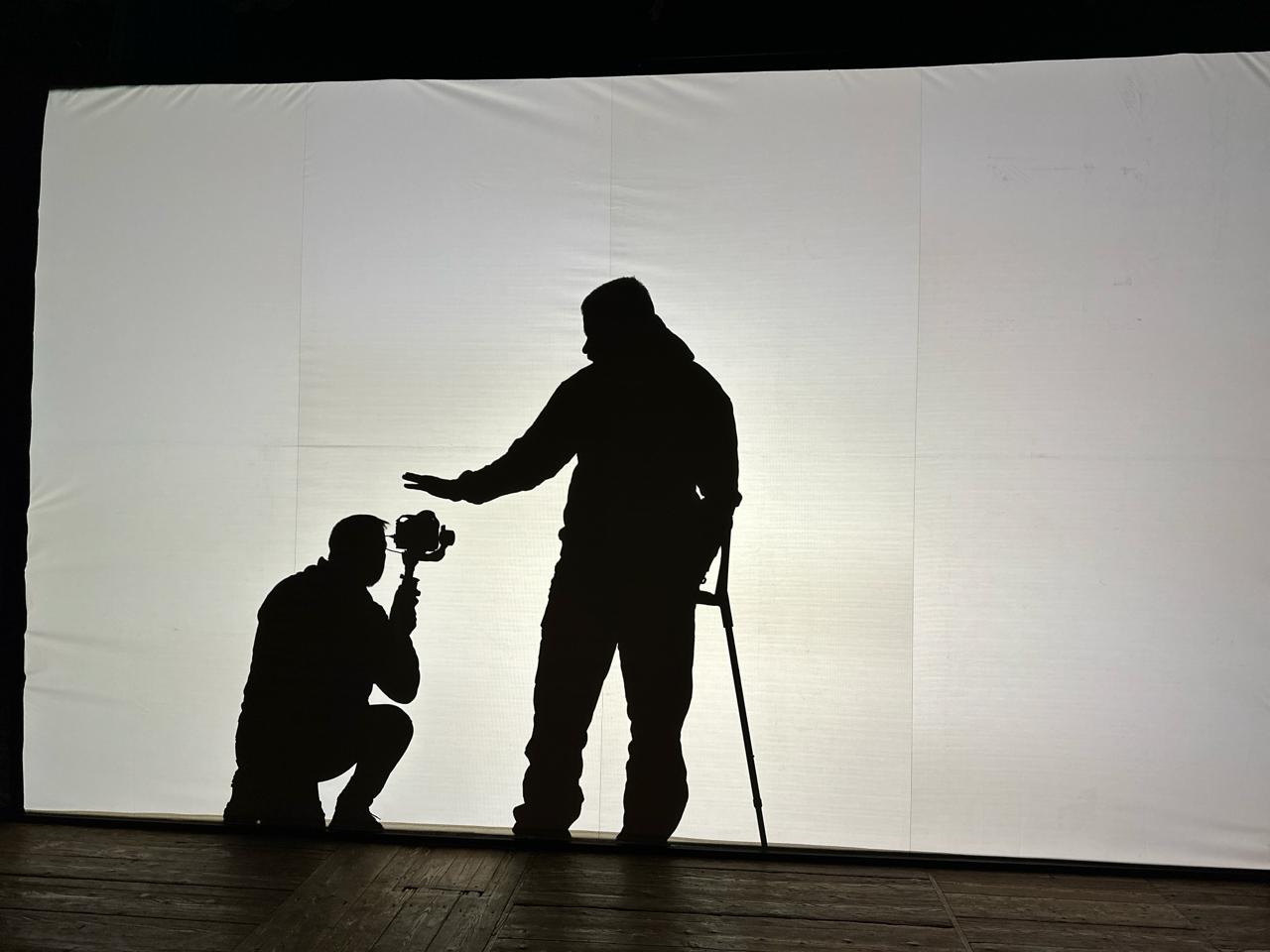
Photo: Yurii has traveled to 20 countries with his shadow theater (courtesy of the State Border Guard Service)
About mobilization and society's attitude toward veterans
Against the backdrop of potential increased mobilization in Ukraine, Yurii Vasylenko believes that we are not in a situation where someone needs to be asked whether they want to go to the front. If we do not want to lose the country,
"For example, some who initially didn't want to go defend Ukraine, and now their cities and villages are occupied, and they are now being forced to fight against us," notes the soldier. "If we allow the occupation of new territories, the same will happen there. During the war, you have to come to the military enlistment office yourself, and no one will catch you on the streets, and you won't say that your rights are being violated. War is not just about assault troops. There are many professions in the military where people are needed, from drivers to engineers. We also need to replace motivated people on the front line who need at least a short rest. I have many acquaintances who haven't rotated for two years. A friend has been under Bahmut for two years. Now is not the time to think whether to go to war or not."
For a wounded soldier undergoing rehabilitation, it's important to see support from those around him. Yurii travels a lot by taxi around Chernihiv. Almost all drivers try to get out and open the door for him. And in cafes, someone unknown often "accidentally" leaves a pastry with his coffee.
"I see that everyone around treats me very well. Honestly, I expected something worse. But I encounter only positive attitudes. People on the street often put their hand to their heart as a sign of respect when they see me. Once, a lady caught up with me and wanted to give me two candies. I refused and explained that my hands were busy - I was walking with crutches. She silently put the candies in my pocket, smiled, and walked away. If you see a soldier walking down the street, don't hesitate to thank them. It will be very pleasant for them," the defender is convinced.
.jpg)
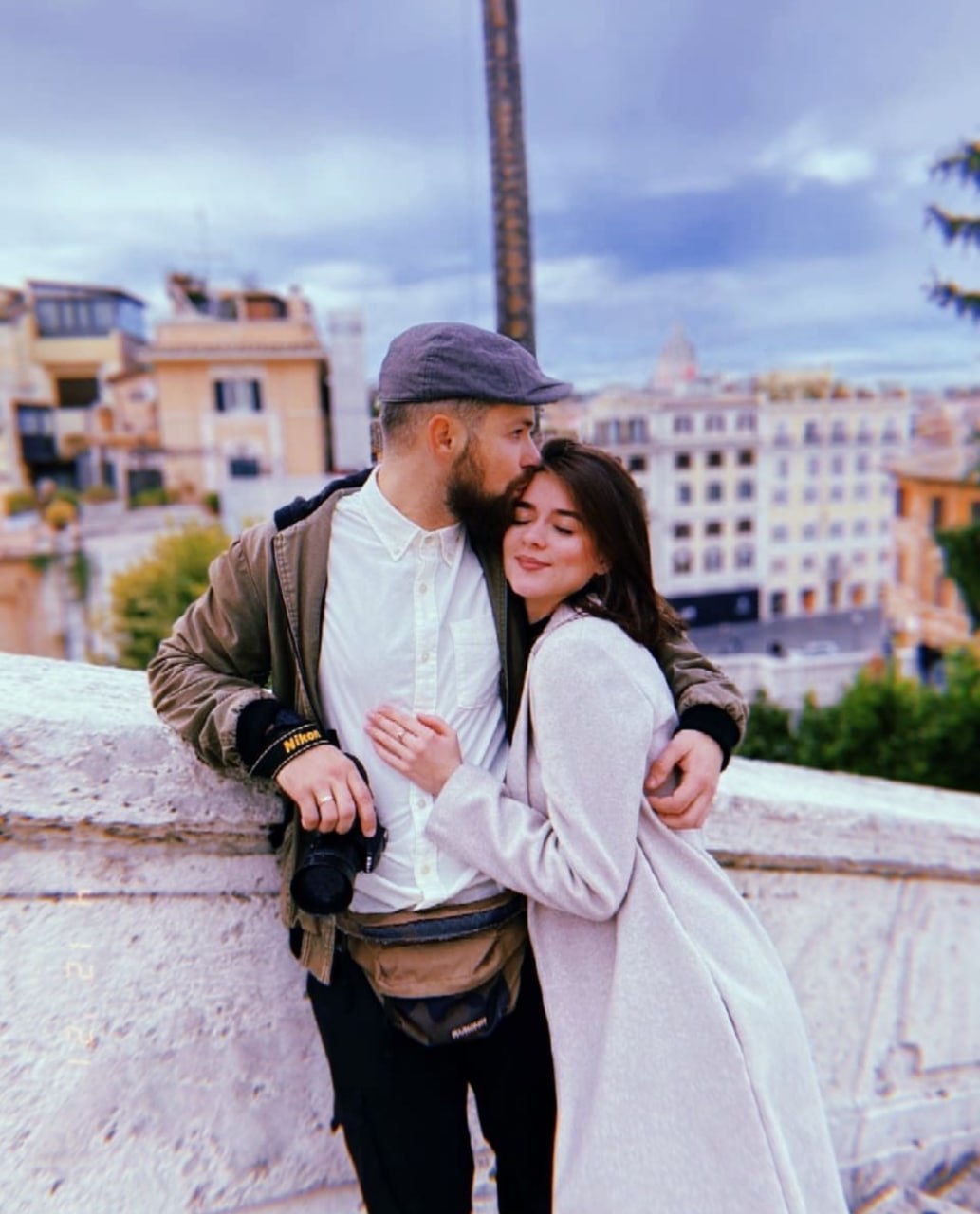
Photo: Yurii is always supported by his wife Olha: she was with him in hospitals immediately after his injury (from his personal archive)
